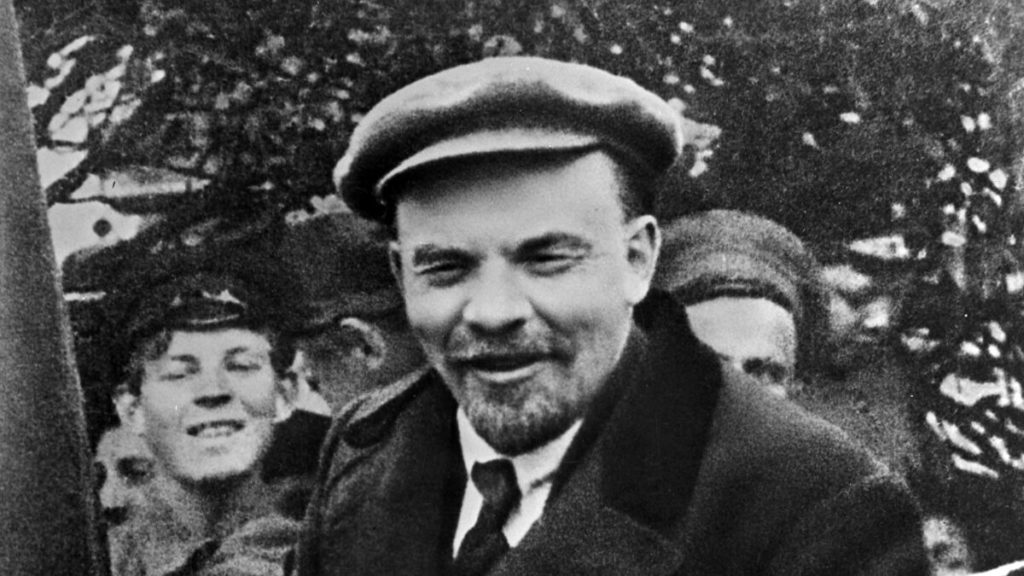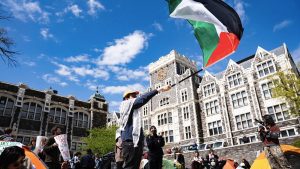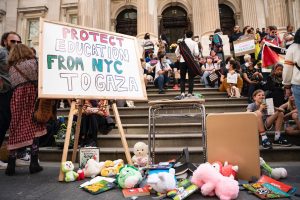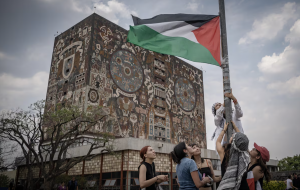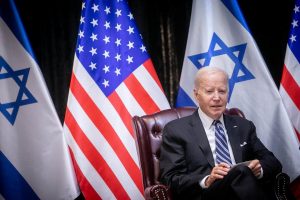On this day in 1870, Vladimir Ilyich Ulyanov, better known as Vladimir Lenin, was born in what was then known as Simbirsk, Russia. He changed the world, and his accomplishments and ideas continue to inspire workers and the oppressed around the world.
Of course, Lenin is best known as the leader of the Bolshevik Party that seized power in 1917 in the Russian Revolution, overthrowing the czar and establishing the first workers’ state in history. But on this anniversary of his birth, let’s take a brief — and by no means exhaustive — look at four of his contributions that made that revolution possible and that also help us understand how to overthrow capitalism today.
The Need to Build a Party of Professional Revolutionaries
In his 1902 work What Is to Be Done?, Lenin argued for a new type of political party — a disciplined one whose members viewed themselves as professional revolutionaries. He raised that argument against what he called inadequate methods for leading a socialist revolution against a centralized capitalist state. The working class could not overthrow the capitalist state — with its “special bodies of armed men” (as he later described the police and militias in his 1917 The State and Revolution) — with a loose organization of individuals and sympathizers.
What did he mean by “professional revolutionaries”? He described them as those who make their revolutionary activity a part of their everyday lives. They must be, he wrote, “professionally trained, schooled by long experience, and working in perfect harmony.” Without such a group, “no class in modern society can wage a determined struggle.”
We see each and every day, when workers and the oppressed rise up, how the capitalist class works to divert their struggles into a graveyard — the Democratic Party. There is no question that a party of professional revolutionaries is as needed now as it was in Lenin’s day. The “determined struggle” he wrote of depends on it.
The Imperative to Smash the Capitalist State
In The State and Revolution, Lenin made a significant contribution to how Marxists understand the capitalist state and what was required to establish socialism. There is, he argued, no reconciling of the working class — the vast majority of society — and the capitalist class. In this struggle, the state is not a “neutral” entity that can be reformed to meet the needs of our class, but exists expressly to defend the interests of the bourgeoisie. So, according to Lenin, the struggle for socialism by its very nature requires seizing the means of production from the hands of the capitalists and smashing the state they have built up to protect their interest. In spelling this out, Lenin gave concrete meaning to the Marxist concept of the “dictatorship of the proletariat.”
It was in this context that Lenin also confronted some opposing ideas on the Left. For instance, he countered the “anarchist doctrine of the ‘abolition’ of the state” and the largely social-democratic caricature of Marx’s concept of the “withering away of the state,” warning that others were “reducing it to opportunism” and “obscuring, if not repudiating, revolution.” His words resonate today as we read article after article by those on the current social-democratic left, for instance in the DSA, as they lead people away from a truly revolutionary path.
The Importance of Self-Determination for National Minorities
Lenin understood that Czarist Russia was a “prison-house of nations,” with some 200 nationalities and languages. He also understood that the working-class unity critical to the success of establishing a workers’ state could not be achieved without addressing the special oppression suffered by Turkic, Azeri, Georgian, Jewish, and other workers and peasants of non-Slavic nationalities in the Russian Empire under the Czar’s brutal, autocratic rule. It would not be enough for the Bolsheviks simply to put forth the formal Marxist slogan: All workers and poor peasants must unite!” National and religious oppression had to be addressed. How else could unity be built if these were ignored?
Linking the fight to internationalism, Lenin advocated for the Bolshevik Party to be the leader in fighting for equality of education, cultural rights, and language rights. National minorities were afforded the choice of joining a Union of Soviet Socialist Republics or their independence, with a political argument being made for the former. Unity, Lenin argued, would come about only when all those oppressed in the former Russian Empire were confident of the commitment of the entire working class and peasantry to self-determination and equality. At the same time, he fought against making concessions to bourgeois nationalism calling for the oppressed nationalities to join the fight for working class internationalism.
In his 1913 article “Russians and Negroes,” Lenin applied these ideas to the struggle for Black liberation in the United States, arguing that it was “a permissible comparison” to compare a race with a nation. He pushed the Bolsheviks to see in the Comintern motto — “Workers and oppressed people of all countries, unite!” — that the struggle of oppressed Black people in the United States for their liberation and the struggle of the working class against capitalism and imperialism were inexorably fused with were indivisible. It is a crucial lesson for the movement today.
The Key to Understanding Imperialism
Lenin’s 1916 book Imperialism, the Highest Stage of Capitalism was a tremendous advance in our understanding of how the system based on the private ownership of the means of production became the global behemoth of oppression that it is today. As Lenin explained, writing in the midst of World War I, “Capitalism has grown into a world system of colonial oppression and of the financial strangulation of the overwhelming majority of the population of the world by a handful of ‘advanced’ countries. And this ‘booty’ is shared between two or three powerful world plunderers armed to the teeth (America, Great Britain, Japan), who are drawing the whole world into their war over the division of their booty.”
The analysis in Lenin’s work also foreshadowed Leon Trotsky’s famous explanation of “uneven and combined development,” so central to understanding the role of revolutionary struggle and the theory of Permanent Revolution. As Lenin wrote, “The uneven and spasmodic development of … individual countries is inevitable under the capitalist system. … [B]oth uneven development and a semi-starvation level of existence of the masses are fundamental and inevitable conditions and constitute premises of this mode of production.”
Absent the understanding of imperialism provided by Lenin, revolutionary strategy would be sorely lacking today. Lenin’s contribution from 1916 informs how revolutionaries characterize the struggles that arise in countries around the world, as well as between the different imperialist countries, and points to the analyses that make possible developing tactics that advance the cause of overthrowing capitalism as the path to genuine liberation.
To these four could be added so many more contributions, not the least of which would be the many day-to-day tactics he worked out and articulated over the course of decades as the very professional revolutionary he advocated for in a revolutionary party. On the 151st anniversary of his birth, every revolutionary — professional and those who aspire to become professional — should remember just how much of our great task of smashing the capitalist state and eliminating class society once and for all relies on the ideas of this titan among history’s revolutionary leaders.


